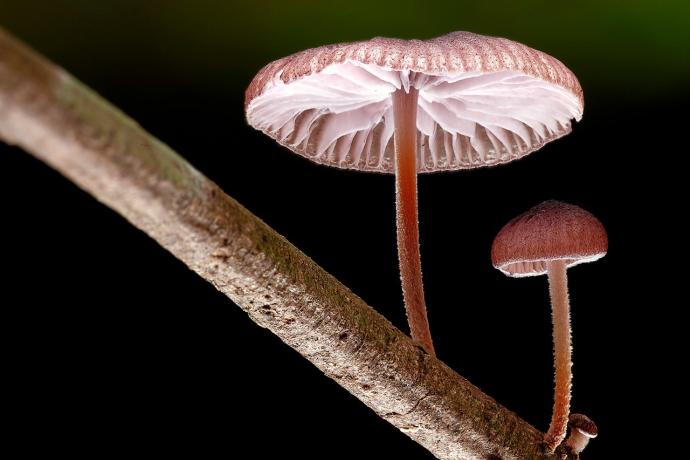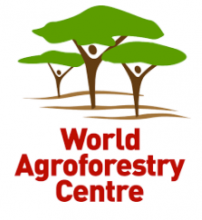A new study from researchers at the World Agroforestry Centre (ICRAF) and the Kunming Institute of Botany (KIB) could help improve predictions of climate change by revealing the hidden role of bark in wood decomposition. For the first time, the scientists linked bark characteristics such as thickness, pH and density – which in life help protect the plant – to "afterlife effects" which help determine how rapidly woody plants decompose. According to the study’s authors, understanding how these effects vary between different plant species could provide a way for researchers to account for variations in plant decomposition rates. This could help scientists model processes in which decomposition plays a major role, such as climate change and nutrient cycling.
According to the lead author, Gbadamassi G.O. Dossa of ICRAF and KIB, the results of the study established the importance of bark traits in determining variations in wood decomposition. “Incorporating these effects should improve our understanding of carbon and nutrient cycles,” he noted.
Woody debris (WD) is a critical but often overlooked component of forest ecosystems. WD represents a globally significant carbon stock, and its decomposition returns nutrients to the soil while providing some form of habitat to microbes, plants and animals. Models of climate change and nutrient cycles therefore depend on an understanding of the drivers of WD decomposition. Scientists have long known that different woody plant species decompose in different ways and at different rates, and that this is at least partially due to the role of the bark in decomposition. However, because previous studies have often failed to distinguish between bark and wood, scientists have been unable to determine how bark traits such as thickness, structure and chemical content affect WD decomposition.
In the recent research, published online in the Journal of Ecology, scientists tackled this issue by looking at the role played by different bark traits in the decomposition of 15 woody plant species. The study, entitled, “The cover uncovered: bark control over wood decomposition”, describes how interspecific variations in bark affect decomposition of the wood inside it. The scientists found that: (i) bark effects on WD decomposition are species- and wood size-specific; (ii) bark enhances the decomposition of coarser WD, but slows twig decomposition in some species, and (iii) in the early stages of wood decomposition, bark prevents certain animals from accelerating decomposition.
Future research could extend this analysis to other plant species, giving scientists a clearer understanding of how plants break down and release carbon and nutrients back into the ecosystem.
Publication Details
Dossa GGO, Schaefer D, Zhang J-L, Tao J-P, Cao K-F, Corlett RT, Cunningham AB, Xu J-C, Cornelissen JHC, Harrison RD. 2018. The cover uncovered: bark control over wood decomposition, Journal of Ecology
https://besjournals.onlinelibrary.wiley.com/doi/abs/10.1111/1365-2745.12976
Contact
Gbadamassi G.O. Dossa (lead author)
Email: dossa@mail.kib.ac.cn
Phone: +86 15974955240
The World Agroforestry Centre
The World Agroforestry Centre (ICRAF) – www.worldagroforestry.org is a centre of scientific excellence that harnesses the benefits of trees for people and the environment. Leveraging the world’s largest repository of agroforestry science and information, we develop knowledge practices, from farmers’ fields to the global sphere, to ensure food security and environmental sustainability.
Kunming Institute of Botany
The Kunming Institue of Botany (KIB) – http://english.kib.cas.cn/ is a leading research institute which is affiliated to the Chinese Academy of Sciences (CAS) and dedicated to research in the fields of Botany and Phytochemistry. KIB is committed to exploring the world of plants, to generating knowledge about them and to developing sustainable ways to use plant resources.


 Decomposing twigs with fungal fruiting bodies. (Photo: Steve Axford)
Decomposing twigs with fungal fruiting bodies. (Photo: Steve Axford)